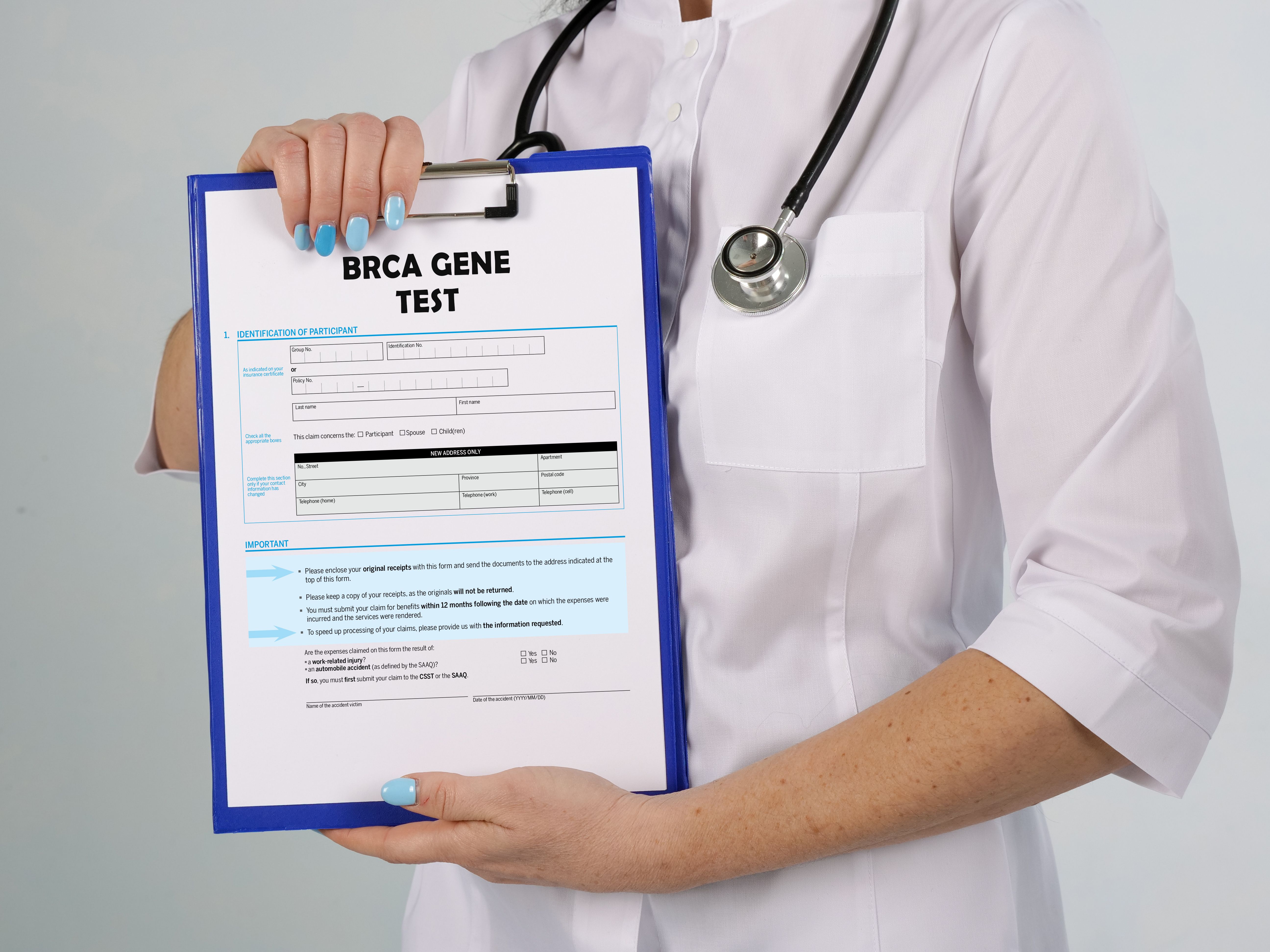- Center on Health Equity & Access
- Clinical
- Health Care Cost
- Health Care Delivery
- Insurance
- Policy
- Technology
- Value-Based Care
BRCA Genes in Breast Cancer: Balancing Risk, Treatment With Breast-Conservation Therapy
Breast-conserving therapy for BRCA1/2 mutation carriers has higher risks of future breast cancers than the general population, but most patients avoid another cancer event, and many remain bilateral mastectomy–free after 20 years.
The study offers information on patients with breast cancer who choose BCT in the context of increased testing and detection of pathogenic BRCA variants.| Image Credit: Yurii Kibalnik - stock.adobe.com

A cohort study published in JAMA Network Open found that patients with breast cancer and pathogenic BRCA1/2 variants treated with breast-conserving therapy (BCT) had above-average risks of ipsilateral and contralateral breast cancer events, but most did not have another cancer event and remained bilateral mastectomy–free.1
Oftentimes, bilateral mastectomy is the form of treatment used to reduce the risk of future breast cancers. More specifically, bilateral mastectomy is highly effective at decreasing potential for future contralateral breast cancers. Typically, patients favor bilateral mastectomy over BCT, a procedure that has a higher risk of future ipsilateral and contralateral breast cancer events.
Most patients who choose bilateral mastectomy are supported by the Management of Hereditary Breast Cancer recommendation 1.1 from the American Society of Clinical Oncology, American Society for Radiation Oncology, and Society of Surgical Oncology guideline, which states, ”germline BRCA status should not preclude a patient with newly diagnosed breast cancer otherwise eligible for [BCT] from receiving BCT”.2
Additionally, the American Society of Breast Surgeons developed guidelines that would help identify patients with a high chance of benefitting from genetic testing, looking specifically for BRCA1/2 mutations.3 These guidelines support genetic testing among all patients with a diagnosis of or with a personal history of breast cancer.1
The study focused on reporting the long-term clinical outcomes in a large, single-institution cohort of patients with a pathogenic BRCA1/2 variant type to inform patients with a variant in either gene. Data were collected within an institutional review board–approved prospective study at the Clinical Cancer Genetics Program at the University of Texas MD Anderson Cancer Center from January 1997 through December 2021.
Participants included 172 patients who identified as female, and the majority were White (66.9%) with an average age of 47.1 years. Women with BRCA1 variants (53.5%) were younger at breast cancer diagnosis and tended to have more advanced tumors compared with BRCA2 variant carriers (46.5%). Additionally, patients with BRCA1 variants were less likely to receive treatment with adjuvant endocrine therapy.
The study followed patients for an average of 11.8 years. At the 10-year mark, researchers estimated 88.5% reached overall survival, 70.7% had not undergone a bilateral mastectomy, 12.2% had experienced a new cancer event in the same breast, and 21.3% had developed cancer in the other breast. These risks continued to rise beyond the 10-year follow-up period.
At 10 years, an estimated 70.7% of patients with BRCA1 mutations avoided bilateral mastectomy, and 81.3% remained cancer-free without undergoing the procedure. Interestingly, among the 37 patients with BRCA1 mutations who did have a bilateral mastectomy, 37.8% did not have a prior ipsilateral or contralateral breast cancer event.
Higher reports of risks of ipsilateral and contralateral breast cancer events were found in patients with pathogenic BRCA1/2 variants treated with BCT compared with the general breast cancer population. Patients who were younger were more likely to experience future ipsilateral breast cancer events, while adjuvant radiotherapy use and bilateral salpingo-oophorectomy were associated with a lower risk of ipsilateral breast cancer events.
The study was limited in that it did not include patients with a BRCA1/2 variant who were unaware or never underwent testing. There was also bias among survival and cancer event risk estimates when receiving genetic testing.
Overall, most patients did not have another cancer event and half remained bilateral mastectomy–free at 20 years of follow-up. The study offers information on patients with breast cancer who choose BCT in the context of increased testing and detection of pathogenic BRCA variants.
References
1. Wanis KN, Kuerer HM, Sun SX, et al. Clinical outcomes for BRCA pathogenic variant carriers with breast cancer undergoing breast conservation. JAMA Netw Open. 2024;7(6):e2418486. doi:10.1001/jamanetworkopen.2024.18486
2. Tung NM, Boughey JC, Pierce LJ, et al. Management of hereditary breast cancer: American Society of Clinical Oncology, American Society for Radiation Oncology, and Society of Surgical Oncology Guideline. J Clin Oncol. 2020;38(18):2080-2106. doi:10.1200/jco.20.00299
3. Manahan ER, Kuerer HM, Sebastian M, et al. Consensus guidelines on genetic testing for hereditary breast cancer from the American Society of Breast Surgeons. Ann Surg Oncol. 2019;26:3025-3031. doi:10.1245/s10434-019-07549-8
